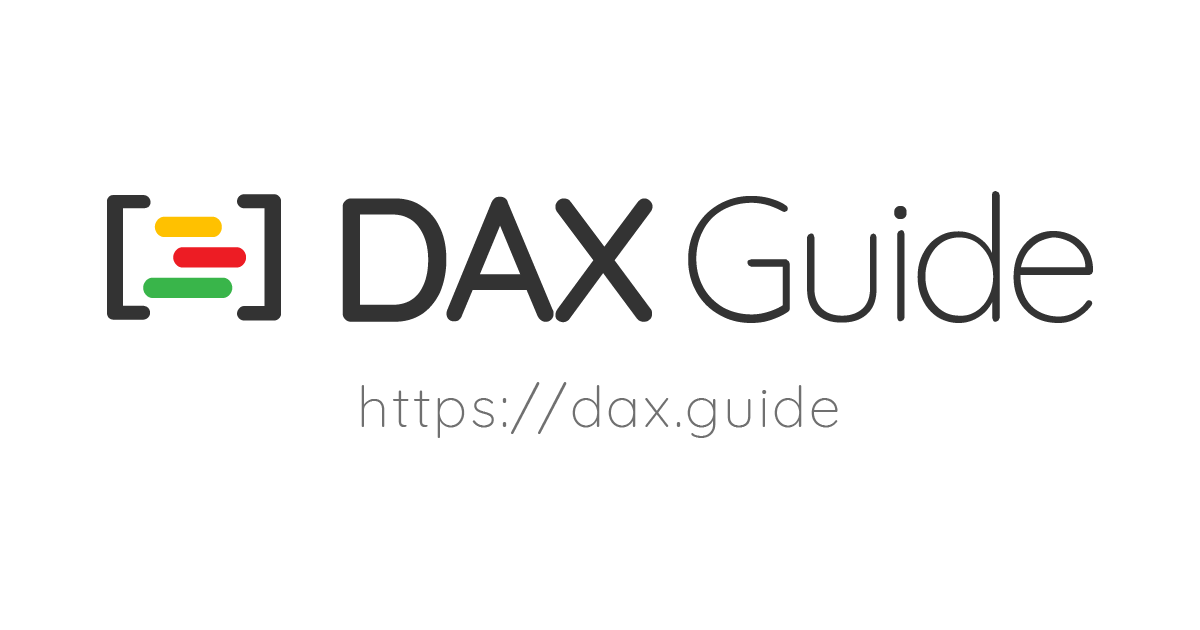If you have read the book Alberto and I wrote, “The Definitive Guide to DAX” then by looking at the title you might think that this post is about the book. Not this time. I am talking about the new great website we are launching today, to provide easier navigation within the DAX functions: DAX Guide (https://dax.guide). The feedback from our early users was enthusiastic, yet I do want to explain why we built this service.
The short answer is simple: this is a tool that I myself had been wanting for years!
That short answer justifies a personal effort, but it’s not enough to convince other people to invest in it. The following aspects provide a fuller answer:
- What is DAX Guide?
DAX Guide is a website offering a complete reference to the DAX language. Every function is presented with its complete syntax, a short description, and links to related functions and articles. - Is DAX Guide a tutorial to learn DAX?
No, DAX Guide is not designed as a learning tool. The goal of DAX Guide is to provide a quick reference with accurate information. The only commitment is “quality first”. - What are some unique features of DAX Guide?
DAX Guide is updated automatically through the monitoring of new versions of Microsoft products. Every DAX function comes with a compatibility matrix describing in which Microsoft products and versions the function may be available. Additional attributes highlight which functions perform a context transition, which arguments are executed within a row context, and which functions are obsolete or deprecated – in our opinion. - Who are the authors of DAX Guide?
In order to guarantee the desired level of quality, the content of DAX Guide is curated by a small number of authors. - Is it possible to submit additional content to DAX Guide?
Yes. Please report any mistake found in DAX Guide using the CONTRIBUTE button available on every page. Suggestions are welcome too.
Although it took several months for the go-live to be ready, we feel that this is just a starting point. Over the last few months, we completed the validation of the additional attributes applied to 275 DAX functions, and we imported a basic description of each function from the MSDN documentation validating each statement included on DAX Guide. The MSDN documentation might be more complete, and you will typically find a link to the MSDN page if available. However, sometimes the MSDN documentation is inaccurate or obsolete – in those cases, we did not import the irrelevant content.
DAX Guide is not a wiki, by design. The content is typed, organized, and it might be available as a service in the future.
I wanted a complete reference that would be easy to access, quick to navigate, with accurate information about context transition and row context for every DAX function. I had been wanting DAX Guide for a few years, and now that I finally got it, I’m super excited to share it with you.
